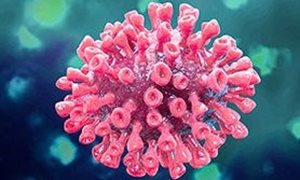 My name is Jaap ten Oever,
Infectious disease specialist since 2014 at the Department of Internal medicine, theme Infectious diseases and global health.
My name is Jaap ten Oever,
Infectious disease specialist since 2014 at the Department of Internal medicine, theme Infectious diseases and global health.
When you were a kid what did you want to be when you grew up? Can you tell us something about your child years.
Together with a twin brother (who has also become an internist, but oncologist) and a younger brother. I had no explicit opinion of what I wanted to be. I have always considered becoming a doctor, partly also because of the interesting work of my father who was a general practitioner.
What was your previous academic training, where did you study and why that study?
In 1998 started with Health Sciences at the Maastricht University since I couldn’t directly start with Medicine. The year thereafter I entered Medical school, also in Maastricht. In the end I chose Medicine because of the combination of great interest in the human body and the direct clinical application thereof. Thereafter I worked in the department of Internal Medicine in MMC Veldhoven as first part of my training for internist. I continued this training in 2009 in Radboudumc, which I combined with a PhD (‘Footprints of infection: novel diagnostic strategies in infectious diseases’).
The RIMLS motto is: ‘Today’s molecules for tomorrow’s medicine’. What does this mean for you?
The influence of the molecular sciences on contemporary medicine is noticeable on a daily basis and developments will probably only follow up faster. This brings many good and at the same time questions about desirability and affordability. In addition, we must not forget that the individual patient also benefits from a good conversation.
Who is your great example as scientists? And please give a motivation why.
Without doubt my promotor Mihai Netea. Clever, humble, innovative, kind, always trying to facilitate the development op (younger) scientists.
Which research discovery that you have made has made you most proud?
Well, honestly, my best discovery is yet to come, if it comes at all. Nevertheless, I am proud of an article in my thesis (that wasn’t even discussed during my defense……blame you, opposition) that assessed the value of cytokine production assay in the evaluation of immune deficiencies. First, it taught me personally a lot on clinical immunology and second it was a very interesting tour through the history of our lab experimental internal medicine.
Given unlimited finance what experiment would you perform?
I am in doubt. Either a study on the use of proxy quality indicators in antimicrobial stewardship or a clinical intervention study in recurrent vulvovaginal candidiasis. The latter will be clinically most revolutionary and would include the findings of recent and current studies on the role of the immune system and vaginal microbiome in RVVC.
What does your working area (desk, office) look like and what does it say about you (or your research)?
My desk is full with papers. It means that I need to see the whole picture and have an overview before I start with an article/experiment/etc.
Nominate a colleague to be in the spotlight and what would you like to ask him or her?
Diletta Rosati. How do you cook the best risotto? ;P
What type of person are you, quick insights:
a) Mac or PC? : Actually both, but this was types on a MACb) Theater or cinema? : If I have to choose, theater
c) Dine out or dine in? : Definitely dine out
d) Ferrari or Fiat? : Ferrari, although I don’t give anything about cars, but I like the speed
e) Shopaholic or chocoholic? : Chocoholic, I hate shopping
f) Culture or Nature : Culture
Related news items

Trained immunity: a tool for reducing susceptibility to and the severity of SARS-CoV-2 infection
17 February 2021 In a review in Cell Mihai Netea, Frank van de Veerdonk, Reinout van Crevel and Jorge Dominguez Andres propose that induction of trained immunity by whole-microorganism vaccines may represent an important tool for reducing susceptibility to and severity of SARS-CoV-2. go to page
Invasive fungal infections in influenza and COVID-19
8 July 2020 The Aspergillus fungus is found in the lungs of many COVID patients. A parallel occurs with influenza patients, who often develop a serious fungal infection. Although such a serious fungal infection seems to occur less frequently in COVID-patients, alertness remains necessary, go to page
Trained immunity: a tool for reducing susceptibility to and the severity of SARS-CoV-2 infection
29 June 2020 In a review in Cell Mihai Netea, Frank van de Veerdonk, Reinout van Crevel and Jorge Dominguez Andres propose that induction of trained immunity by whole-microorganism vaccines may represent an important tool for reducing susceptibility to and severity of SARS-CoV-2. go to page.aspx?width=2120&height=1414&ext=.jpg&type=BlockColumn1Zoom1)
New insight into the effect of hydroxychloroquine undermines its use in corona
11 June 2020 Researchers at Radboud university medical center have discovered an as yet unknown effect of hydroxychloroquine. Raphael Duivenvoorden was interviewed in the program Op1 at NPO1 to elaborate on the findings. It seems unlikely that chloroquine has beneficial effect in corona infections. go to page
Terrestrial bacteria can grow on nutrients from space
26 May 2020 Researchers from the Radboudumc describe in an article in Astrobiology that bacteria can survive on an 'extraterrestrial diet', which affected their pathogenic potential. go to page